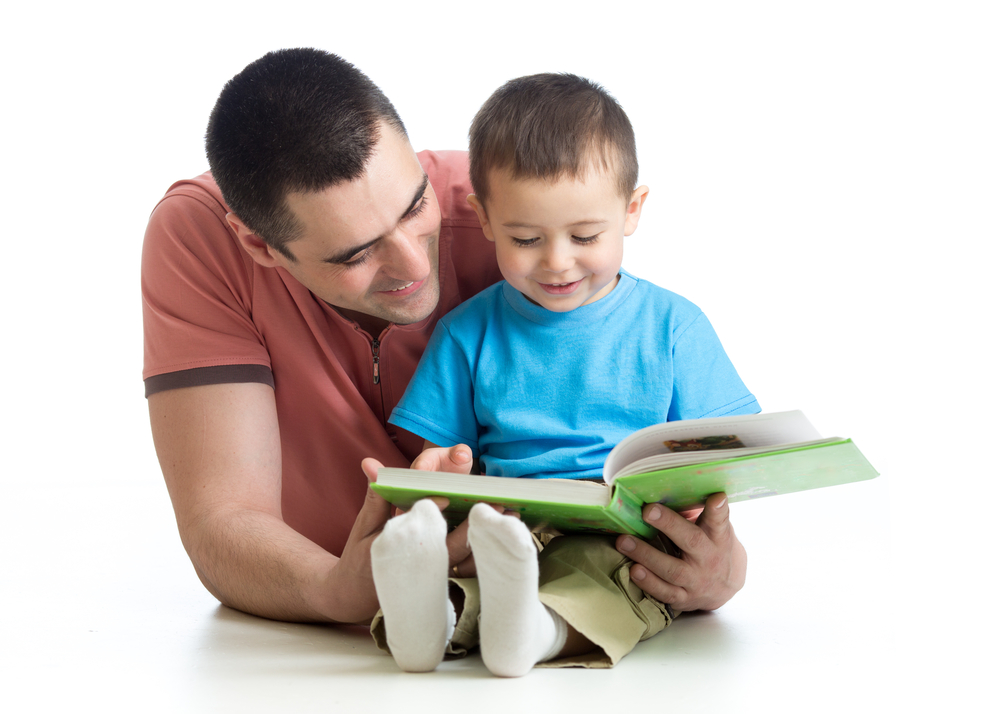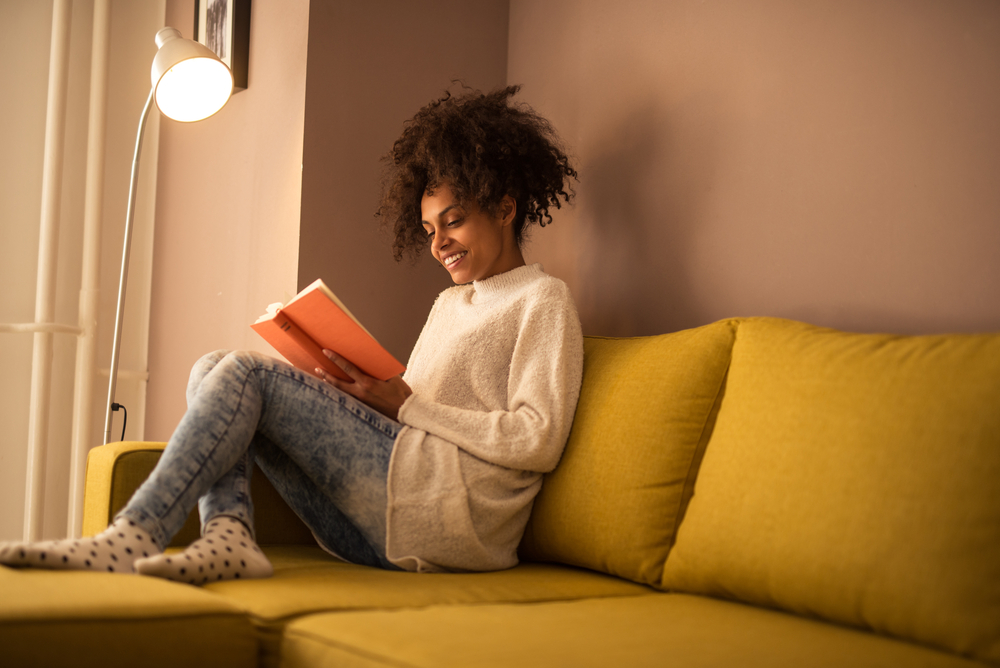Every time we move, my husband and I have the same argument. “Do we have to take ALL of these books?” (The answer is always a dirty scowl and a “YES!”)
I have a ton of physical books that I insist on carting from house to house, state to state. It drives him crazy. Boxes of heavy books are not exactly easy to move. And my husband makes the very valid argument that I could just get them all on my Kindle (and stop continually buying new print editions). Which I get. But…but…it’s just not the same.
I love a physical book. I love the smell of fresh paper, and the feel of the crisp pages turning in my hand. I love to see my collection of books on a shelf and remember where I was and who I was when I read them. It feels like looking back on my emotional journey as a human being when I glance up at the titles gracing the shelves. And I just refuse to give that up.
Not that I have anything against Kindle books. In fact I love them too. On trips I used to have to pack several heavy books to read. Now I can just can take one tablet. And it’s fantastic. Having a Kindle has single handedly reduced the weight of my bags by about 100 thousand pounds (rough estimate). But even though I love the ease of ordering books (instant gratification!), the cheaper price of titles, and the whole tree saving thing, I can’t wean myself off from wanting physical books in my hands. Which begs the question. Should I?
So I looked up various studies on the benefits of print vs ebooks and found that (in many ways), the paper book is still king. Because these studies all agree: There’s a huge benefit to continuing to read print books.
1. They’re Better For Your Sleep.

It’s well documented that looking at your computer screen right before bed has a negative effect on your sleep patterns. Yet even though we know that it’s bad for us, it can be really hard to kick the habit. (You can pry my phone out of cold dead hands right before bed! And you might have to… Some studies have linked screen time to premature death). But one way to cut down on screen time can be to read paper books vs e-books.
According to a study at Harvard Medical School, researchers found that reading e-books had an adverse impact on “overall health, alertness and the circadian clock, which synchronizes the daily rhythm of sleep to external environmental time cues”
The team conducted a two week study in which they asked twelve participants to read on an Ipad before bed and then repeated the study with paper books. And while that isn’t a crazy number of participants (probably 50% of all book readers left on earth), their findings were interesting:
“Participants reading an LE-eBook took longer to fall asleep,” Said Anne-Marie Chang, an associate neuroscientist at Brigham Women’s Division of Sleep and Circadian Disorders, “And (they) had reduced evening sleepiness, reduced melatonin secretion, later timing of their circadian clock and reduced next-morning alertness than when reading a printed book.”
Basically when reading e-books, participants in the study went to bed later and were much more tired the next day. And when sleeping, they spent less time in REM sleep. So even though they were still getting 8 hours of sleep, they felt significantly less rested than when they read an actual book.
So if you want to sleep well, you need to ditch the e-reader for a physical book.
2. They’re Vital For Childhood Development and Comprehension.

Everyone knows that reading to your kid is a good thing. But it turns out that all reading isn’t equal! An article from the New York Times outlines the problem with using e-readers with children. They site a 2013 study in which researchers discovered that when children (ages 3-5) were read to from an electronic book, they had a lower reading comprehension score than children being read to from a traditional story book.
They found that the device was distracting from the actual story. Because both parents and children spent more significant time interacting with the e-reader than concentrating on explaining and discussing the story elements and language.
Linguistically, this is a problem — as one of the keys to success is what researchers call “dialogic reading” in which children and adults discuss key aspects and concepts in a story while they’re reading it. Its a very important step on the path to reading comprehension.
“What we’re really after in reading to our children is behavior that sparks a conversation,” said Kathy Hirsh-Pasek, a professor of psychology at Temple and co-author of the 2013 study. “But if that book has things that disrupt the conversation, like a game plopped right in the middle of the story, then it’s not offering you the same advantages as an old-fashioned book.”
3. Paper Books Help With Reading Retention.

Probably most of the people reading this article will be scanning the bullet points and moving on with their day (don’t worry, I’ll cry about it later). It’s simply that when we read on a screen, the way we read is different. As reported in Scientific American, a 2005 survey at San Jose University by Ziming Liu, found that screens cause people to take shortcuts when reading. They look for keywords and absorb them rather than reading things sentence by sentence as we do on paper. It’s not necessarily a bad thing, it’s just different. We consume online magazines and blogs to get quick, punchy information that we can carry with us temporarily. So essentially, we’ve been trained to skip to the good parts. And for many of the articles we read online, that’s okay.
But unfortunately we tend to carry those same habits over to our e-readers. Thus, we’re in danger of skipping over the nuances of the language and emotional journey of a novel when we read it on an e-book. As reported by The Guardian, a study by lead researcher Anne Mangen (of Norway’s Stavanger University) found that stories read on e-readers were not remembered as well as when they were read on a more traditional medium.
In the study, the researchers gave 50 readers a short story. Half read it in a book, and the other half on a Kindle. Then they gave them a test on what they’d read.
“The Kindle readers performed significantly worse on the plot reconstruction measure, ie, when they were asked to place 14 events in the correct order,” Mangen said.
She theorized as to why this was, “When you read on paper you can sense with your fingers a pile of pages on the left growing, and shrinking on the right. You have the tactile sense of progress, in addition to the visual–Perhaps this somehow aids the reader, providing more fixity and solidity to the reader’s sense of unfolding and progress of the text, and hence the story.”
Mangen feels that your brain needs the physical sense of where things fall in the story to remember the events as they take place. Something you simply don’t get with a Kindle or other e-reader.
So are e-books convenient? Yes! But they aren’t necessarily the better option for our brains. In fact, in areas of retention, comprehension, and sleep, they’re significantly worse. Which will, at the very least give me an upper hand in future book-related arguments with my husband.
Via Entrepreneur






